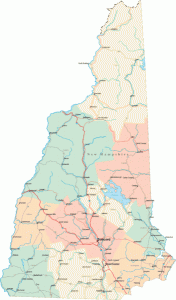New Hampshire Tax
New Hampshire State Tax
New Hampshire Income Tax
 US residents must pay taxes to the federal government and to the state where they work or reside in. These taxes are collected to help generate funds for government operations, activities, and services. Federal tax and state tax are two different set of taxes that follow different tax laws; hence, state taxes vary across the country. The New Hampshire Department of Revenue Administration manages state tax laws in New Hampshire.
US residents must pay taxes to the federal government and to the state where they work or reside in. These taxes are collected to help generate funds for government operations, activities, and services. Federal tax and state tax are two different set of taxes that follow different tax laws; hence, state taxes vary across the country. The New Hampshire Department of Revenue Administration manages state tax laws in New Hampshire.
Income Tax
New Hampshire does not levy personal income tax on wages. Instead, the state collects 5% tax on interests and dividend incomes of over $2400 a year. The state offers a number of exemptions for qualified taxpayers. New Hampshire allows $1200 exemption for senior citizens, blind individuals, and people below 65 years old who cannot work because of disabilities.
New Hampshire Sales Tax
New Hampshire does not levy state sales taxes. However, there are excise taxes and other special taxes levied on certain products and services. The state collects 9% special sales tax on restaurants and prepared food items except those eaten out of restaurant premises. Room and car rentals are also subject to 9% special sales tax, while telecomm services are charged 7% special tax. Admission fees in New Hampshire are not subject to sales tax in New Hampshire if they are for mere admission purposes only.
New Hampshire Property Tax
New Hampshire collects one of the highest property tax rates in the United States. The average property tax rate collected in the state is 1.86%. There are only 2 states that levy higher property tax rates than New Hampshire.

